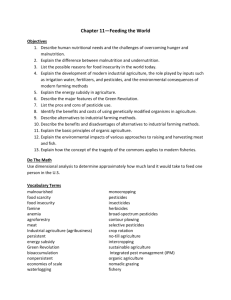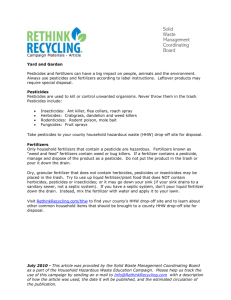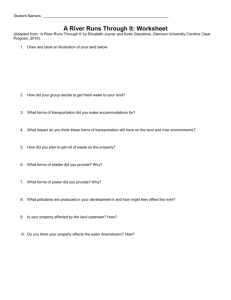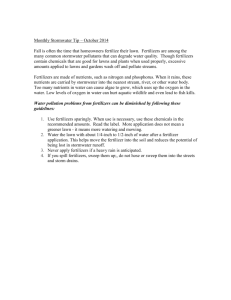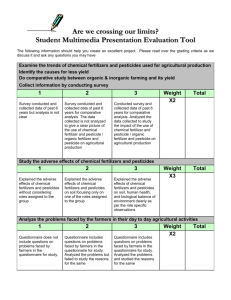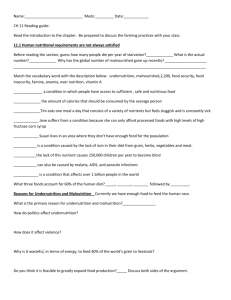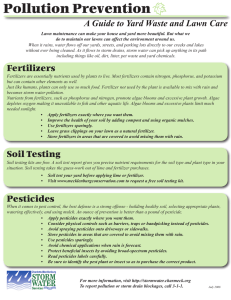IF YOU USE TOO MUCH FERTILIZER ON YOUR LAWN, FERTILIZE THE STREAM.
advertisement
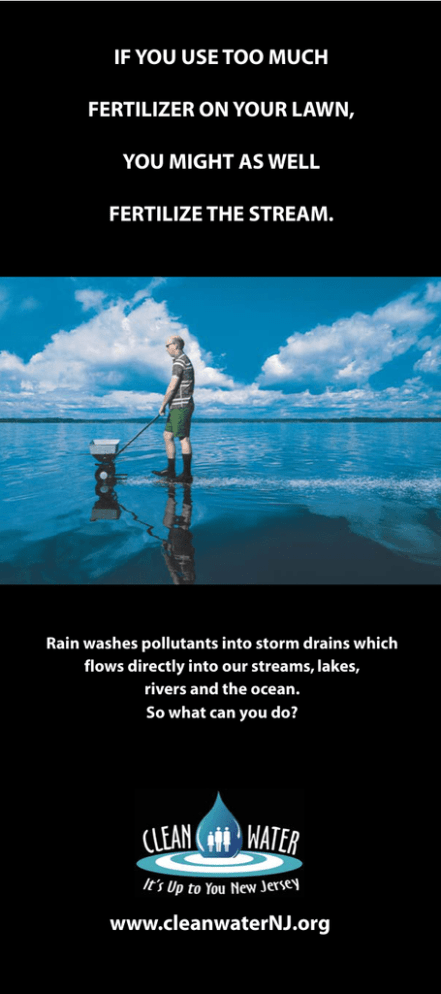
IF YOU USE TOO MUCH FERTILIZER ON YOUR LAWN, YOU MIGHT AS WELL FERTILIZE THE STREAM. Rain washes pollutants into storm drains which flows directly into our streams, lakes, rivers and the ocean. So what can you do? www.cleanwaterNJ.org WHAT’S THE PROBLEM WITH FERTILIZERS AND PESTICIDES? Fertilizers help plants grow by adding nutrients to the soil. Pesticides (including herbicides) are any toxic substances used to kill insects, animals or plants. If fertilizers or pesticides are improperly applied, they can wash off your lawn or garden into storm drains and directly to our lakes, rivers, and the ocean. These chemicals can contaminate your drinking water, as well as kill fish, wildlife and plants. Too much fertilizer washing into a lake can cause algae to bloom in lakes, which will affect swimming, fishing and boating. YOU CAN HELP! Test your soil at your County’s Rutgers Cooperative Research and Extension office, or buy a self-test kit. Use natural, slow-release nitrogen, or low phosphorus fertilizers. Look into natural alternatives to fertilizers and pesticides, such as integrated pest management (IPM). If you need to use fertilizers or pesticides, follow the instructions on the label on how to correctly apply. Do not apply fertilizers or pesticides before it rains. This will not allow the fertilizers or pesticides to penetrate through the soil. Use drought-resistant native plants in gardens; they require less fertilizer and less water. Use a mulching mower instead of bagging grass clippings. WHY SHOULD YOU CARE ABOUT CLEAN WATER? Stormwater pollution is one of the greatest threats to New Jersey’s clean water supply. Clean water provides access to safe drinking water, places for recreation, commercial opportunities, healthy wildlife habitats, and adds beauty to our landscape. Rain washes pollution from streets, parking lots, and lawns into storm drains, then directly to our streams, rivers, lakes and the ocean. Did you know more than 60 percent of water pollution comes from things like motor oil, fertilizers, pet waste and detergents? By sharing the responsibility and making small, easy changes in our daily lives, we can keep common pollutants out of stormwater. www.cleanwaterNJ.org Thanks to the Washington State Department of Ecology, King County, and the cities of Bellevue, Seattle and Tacoma.
